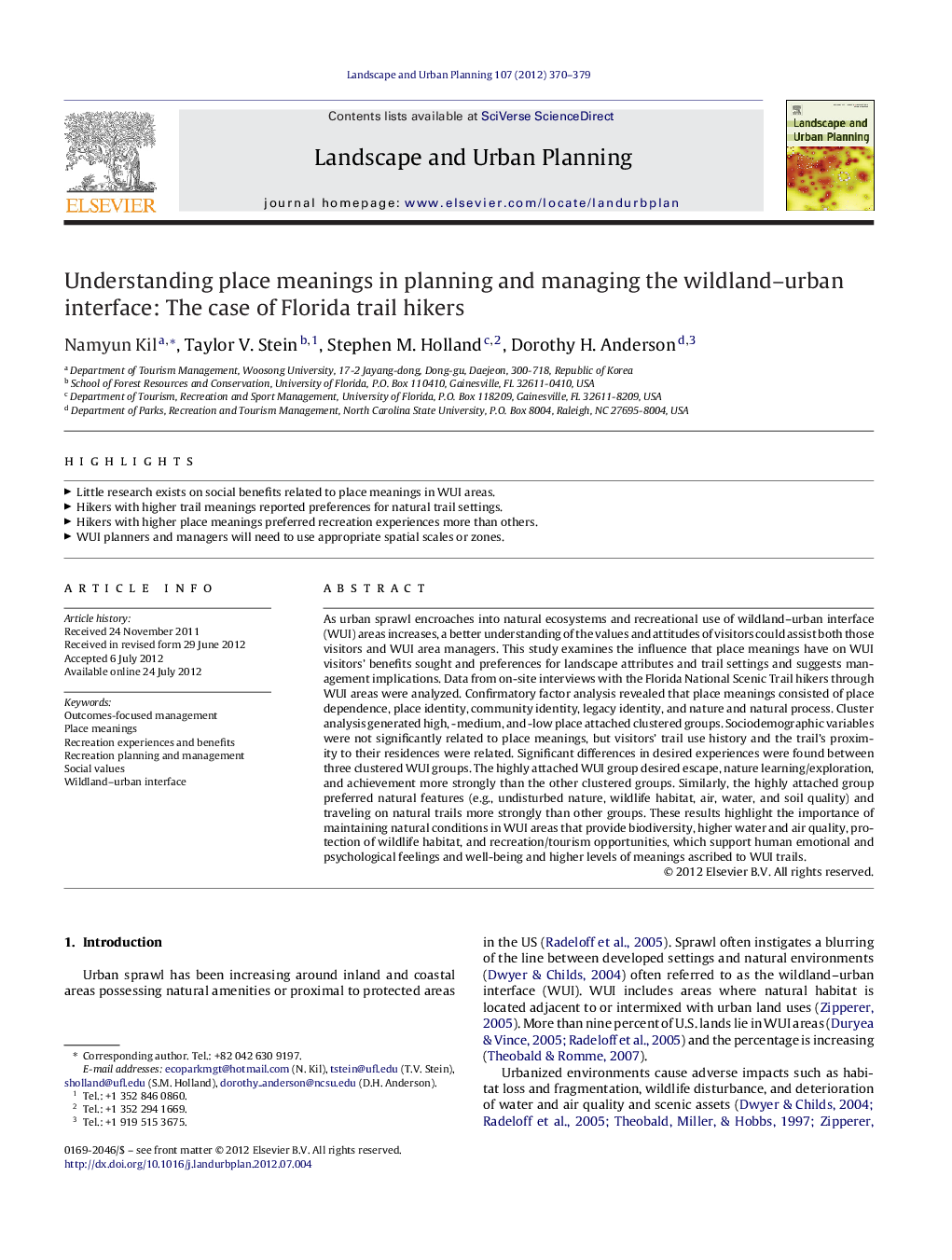| کد مقاله | کد نشریه | سال انتشار | مقاله انگلیسی | نسخه تمام متن |
|---|---|---|---|---|
| 1049392 | 945607 | 2012 | 10 صفحه PDF | دانلود رایگان |

As urban sprawl encroaches into natural ecosystems and recreational use of wildland–urban interface (WUI) areas increases, a better understanding of the values and attitudes of visitors could assist both those visitors and WUI area managers. This study examines the influence that place meanings have on WUI visitors’ benefits sought and preferences for landscape attributes and trail settings and suggests management implications. Data from on-site interviews with the Florida National Scenic Trail hikers through WUI areas were analyzed. Confirmatory factor analysis revealed that place meanings consisted of place dependence, place identity, community identity, legacy identity, and nature and natural process. Cluster analysis generated high, -medium, and -low place attached clustered groups. Sociodemographic variables were not significantly related to place meanings, but visitors’ trail use history and the trail's proximity to their residences were related. Significant differences in desired experiences were found between three clustered WUI groups. The highly attached WUI group desired escape, nature learning/exploration, and achievement more strongly than the other clustered groups. Similarly, the highly attached group preferred natural features (e.g., undisturbed nature, wildlife habitat, air, water, and soil quality) and traveling on natural trails more strongly than other groups. These results highlight the importance of maintaining natural conditions in WUI areas that provide biodiversity, higher water and air quality, protection of wildlife habitat, and recreation/tourism opportunities, which support human emotional and psychological feelings and well-being and higher levels of meanings ascribed to WUI trails.
► Little research exists on social benefits related to place meanings in WUI areas.
► Hikers with higher trail meanings reported preferences for natural trail settings.
► Hikers with higher place meanings preferred recreation experiences more than others.
► WUI planners and managers will need to use appropriate spatial scales or zones.
Journal: Landscape and Urban Planning - Volume 107, Issue 4, 30 September 2012, Pages 370–379